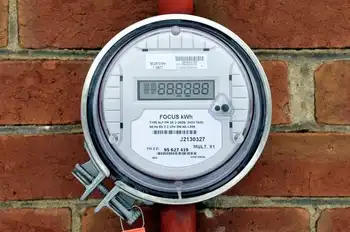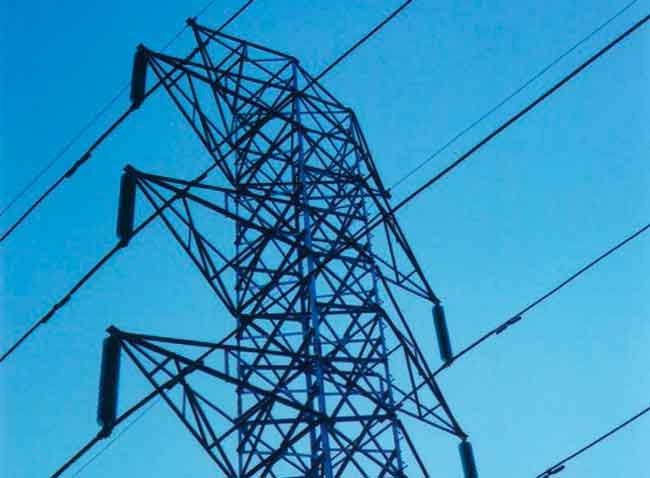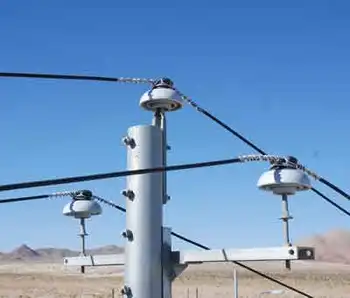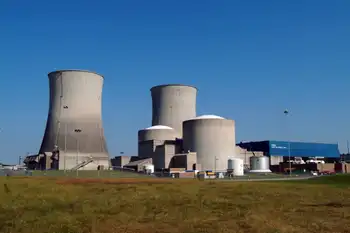Tesla Energy Ventures Texas enters the deregulated market as a retail electricity provider, leveraging ERCOT, battery storage, solar, and grid software to enable virtual power plants and customer energy trading with Powerwall and Megapack assets.
Key Points
Tesla Energy Ventures Texas is Tesla's retail power unit selling grid and battery energy and enabling solar exports.
✅ ERCOT retail provider; sells grid and battery-stored power
✅ Uses Powerwall/Megapack; supports virtual power plants
✅ Targets Tesla owners; enables solar export and trading
Last week, Tesla Energy Ventures, a new subsidiary of electric car maker Tesla Inc. (TSLA), filed an application to become a retail electricity provider in the state of Texas. According to reports, the company plans to sell electricity drawn from the grid to customers and from its battery storage products. Its grid transaction software may also enable customers for its solar panels to sell excess electricity back to the smart grid in Texas.1
For those who have been following Tesla's fortunes in the electric car industry, the Palo Alto, California-based company's filing may seem baffling. But the move dovetails with Tesla's overall ambitions for its renewable energy business, as utilities face federal scrutiny of climate goals and electricity rates.
Why Does Tesla Want to Become an Electricity Provider?
The simple answer to that question is that Tesla already manufactures devices that produce and store power. Examples of such devices are its electric cars, which come equipped with lithium ion batteries, and its suite of battery storage products for homes and enterprises. Selling power generated from these devices to consumers or to the grid is a logical next step.
Tesla's move will benefit its operations. The filing states that it plans to build a massive battery storage plant near its manufacturing facility in Austin. The plant will provide the company with a ready and cheap source of power to make its cars.
Tesla's filing should also be analyzed in the context of the Texas grid. The state's electricity market is fully deregulated, unlike regions debating grid privatization approaches, and generated about a quarter of its overall power from wind and solar in 2020.2 The Biden administration's aggressive push toward clean energy is only expected to increase that share.
After a February fiasco in the state grid resulted in a shutdown of renewable energy sources and skyrocketing natural gas prices, Texas committed to boosting the role of battery storage in its grid. The Electricity Reliability Council of Texas (ERCOT), the state's grid operator, has said it plans to install 3,008 MW of battery storage by the end of 2022, a steep increase from the 225 MW generated at the end of 2020.3 ERCOT's proposed increase in installation represents a massive market for Tesla's battery unit.
Tesla already has considerable experience in this arena. It has built battery storage plants in California and Australia and is building a massive battery storage unit in Houston, according to a June Bloomberg report.4 The unit is expected to service wholesale power producers. Besides this, the company plans to "drum up" business among existing customers for its batteries through an app and a website that will allow them to buy and sell power among themselves, a model also being explored by Octopus Energy in international talks.
Tesla Energy Ventures: A Future Profit Center?
Tesla's foray into becoming a retail electricity provider could boost the top line for its energy services business, even as issues like power theft in India highlight retail market challenges. In its last reported quarter, the company stated that its energy generation and storage business brought in $810 million in revenues.
Analysts have forecast a positive future for its battery storage business. Alex Potter from research firm Piper Sandler wrote last year that battery storage could bring in more than $200 billion per year in revenue and grow up to a third of the company's overall business.5
Immediately after the news was released, Morningstar analyst Travis Miller wrote that Tesla does not represent an immediate threat to other major players in Texas's retail market, where providers face strict notice obligations illustrated when NT Power was penalized for delayed disconnection notices, such as NRG Energy, Inc. (NRG) and Vistra Corp. (VST). According to him, the company will initially target its own customers to "complement" its offerings in electric cars, battery, charging, and solar panels.6
Further down the line, however, Tesla's brand name and resources may work to its advantage. "Tesla's brand name recognition gives it an advantage in a hypercompetitive market," Miller wrote, adding that the car company's entry confirmed the firm's view that consumer technology or telecom companies will try to enter retail energy markets, where policy shifts like Ontario rate reductions can shape customer expectations.
Related News












